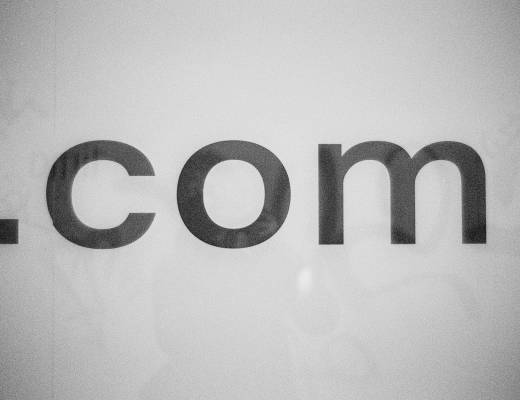If you are just getting into the hotel business and preparing to open your first hotel, chances are you are both excited and nervous. It’s only natural because although the hospitality industry can be a great way to build your fortune (hello Hilton family), it can also be a tricky business to do well and get right, right? That being the ase, below, we have put together some top tips for people starting out with their first hotel, which should help you to hit the ground running.
Nailing the Location
Every hotel dream begins with a pin on a map. It doesn’t matter how stylish your rooms are or how clever your branding is if you’ve chosen the wrong spot.
The location dictates your audience, your pricing, and ultimately your survival. A boutique hotel hidden in a sleepy town with no tourist draw will struggle no matter how beautiful it is. On the other hand, a budget-friendly inn in the heart of a bustling hotel business district may find itself overbooked before the paint is dry. Location is not just geography; it’s strategy. You must consider accessibility, competition, seasonality, and the
long-term potential of the area. If people can’t find you, won’t want to go where you are, or see no reason to return, you’ll be struggling to stay afloat before your first year is over.
Designing the Guest Experience
It’s tempting to get lost in the design details – the paint colors, the tile patterns, the style of the headboards. But while those things matter, they pale in comparison to the overall guest experience. Guests rarely remember whether you chose brushed nickel or brass for the faucets. What they do remember is whether their check-in was smooth, the room was spotless, and the staff made them feel welcome. The experience is what transforms a one-time booking into repeat hotel business. From the first click on your website to the moment they check out, every interaction is part of a story you’re telling. If your story feels disjointed or careless, the reviews will reflect it. If it feels thoughtful and intentional, you’ll be rewarded with loyalty that no discount site can undercut.
Building a Strong Team
A hotel is not a solo project. You can obsess over every operational detail, but at the end of the day, it’s your staff who will carry the vision forward. Guests don’t see owners stressing over spreadsheets; they see the receptionist who greets them at midnight, the housekeeper who folds the towels just right, and the waiter who remembers their drink order. Hiring the right people is non-negotiable. You need individuals who aren’t just capable but who embody the culture you want to create. Training is equally crucial. Even the friendliest employee will falter without clear standards and consistent support. A strong team culture built on respect and pride in the work will do more for your reputation than any flashy ad campaign ever could.
Mastering the Numbers
If design is the fun part, finance is the cold splash of reality.
Hotels are capital-intensive businesses with high overhead, unpredictable demand, and tight margins. Too many first-time hoteliers fall into the trap of assuming that full rooms automatically equal profit. The truth is that profitability is a delicate dance between occupancy, average daily rate, staffing costs, maintenance, and a hundred other moving parts. Without a strong grip on your numbers, you risk sinking even when the front desk looks busy. That means developing realistic forecasts, budgeting for downturns, and paying close attention to cash flow. You don’t need to be an accountant, but you do need to respect the math. Ignoring it is like ignoring the tide, it will swallow you whole whether you’re ready or not.
Marketing Like You Mean It
You can build the most charming, luxurious,
unforgettable hotel in the world, but none of it matters if no one knows you exist. Marketing is not something to tack on after the fact; it’s central to your survival. And in a world where travelers are bombarded with options, simply being “open for business” doesn’t cut it. You need a brand that stands out, a story that resonates, and a strategy that gets you seen in all the right places. That may involve SEO, social media, partnerships with local businesses, or loyalty programs that keep people coming back. It often pays to lean on specialists, after all, you don’t have to reinvent the wheel. You can always
discover services from a hotel marketing firm that knows exactly how to position your property for maximum visibility. Good marketing is not an expense; it’s the engine that drives your occupancy.
Embracing Technology
Hospitality is rooted in human connection, but technology is what keeps everything running smoothly behind the scenes. Guests today expect seamless booking systems, mobile check-ins, reliable Wi-Fi, and perhaps even smart room features. They also expect a hotel that communicates clearly and quickly, often through digital channels. On the back end, technology helps you manage reservations, optimize staffing, track guest preferences, and even predict demand trends. The right tools can save you money, free up your team, and deliver a better experience for guests. The wrong attitude – pretending you don’t need tech – can make you look outdated before you’ve even started. The goal isn’t to replace human warmth but to enhance it. Technology should handle the routine so your staff can focus on creating the memorable moments that make hospitality magical.
Preparing to Adapt
The hospitality industry is one of the most volatile around. Economic downturns, natural disasters, shifting travel trends, and global events can upend everything overnight.
Opening your first hotel means accepting that change is constant and adaptability is essential. What works beautifully today may be obsolete tomorrow. The hotels that survive and thrive are those that stay flexible. That might mean tweaking your pricing model, adjusting your services, rethinking your target audience, or even reinventing your entire concept if the market demands it. Rigidity is the kiss of death. Agility, on the other hand, is your life raft. Your guests’ expectations will evolve, the competition will get sharper, and the industry will throw curveballs. If you embrace change as
part of the job, you won’t just survive, you’ll be ready to seize opportunities your slower competitors miss.
Final Thoughts
Opening your first hotel is about more than just creating a hotel business, right? It’s about creating a home away from home, where people feel relaxed, pampered, and cared for. If you can do that, then you can succeed, but do all seven of these things just to be sure. Good luck!
Photo by Steven Van Elk; Unsplash







